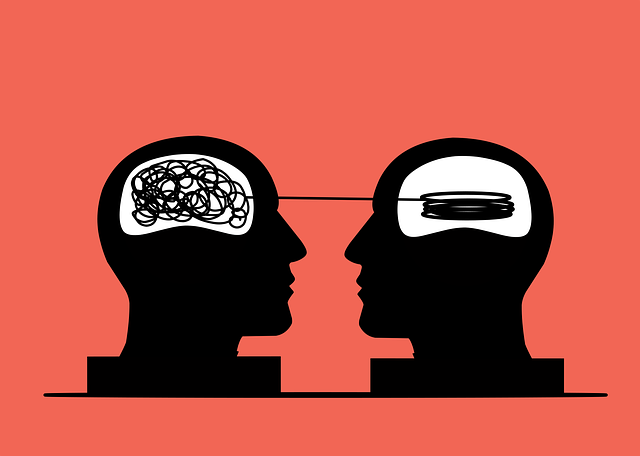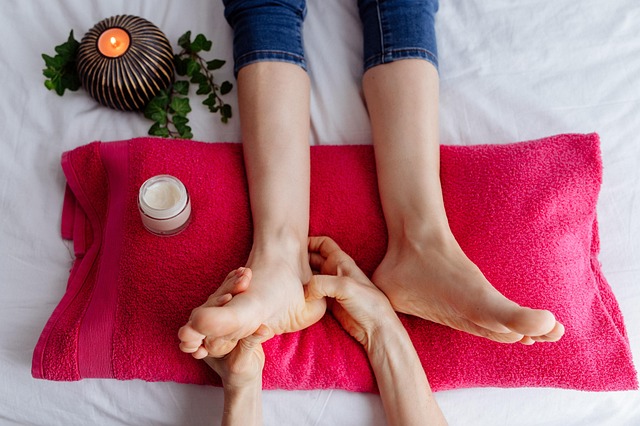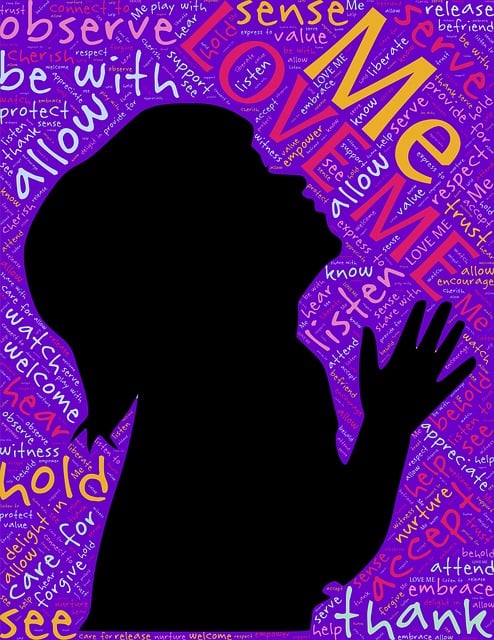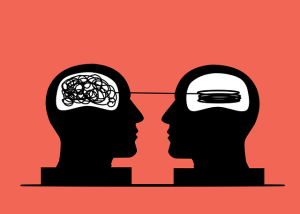Chronic anxiety, distinguished from ordinary stress by its persistent nature, is influenced by genetic factors, brain chemistry, trauma, and medical issues. Effective anxiety treatment involves a multi-faceted approach combining cognitive behavioral therapy (CBT) for addressing negative thought patterns, mindfulness practices like MBSR or MBCT to foster present-moment focus and resilience, and medication tailored to individual needs. Lifestyle changes such as diet, exercise, sleep, stress reduction, and mindfulness further support treatment, offering a holistic approach to managing symptoms and building resilience.
Chronic anxiety can significantly impact daily life, but there are effective therapy options available. This comprehensive guide explores various approaches to managing this condition, from understanding its symptoms and causes to practical strategies like cognitive behavioral therapy (CBT), mindfulness techniques, and lifestyle changes. Discover how medication plays a role in treatment and learn long-term resilience building for enhanced anxiety coping. Explore these evidence-based methods for improved mental well-being and better control over chronic anxiety.
Understanding Chronic Anxiety: Symptoms and Causes

Chronic anxiety is a complex condition that goes beyond typical, short-term worry or stress. It’s characterized by persistent, excessive, and often uncontrollable feelings of fear, nervousness, or unease. Those affected may experience physical symptoms like increased heart rate, muscle tension, and difficulty sleeping. Cognitive behavioral therapy (CBT) is an established anxiety treatment that helps individuals identify and change negative thought patterns contributing to their anxiety. By learning coping strategies and relaxation techniques, individuals can better manage their symptoms.
Several factors can contribute to chronic anxiety, including genetic predisposition, brain chemistry imbalances, traumatic life events, and certain medical conditions. Stressful life situations, such as financial problems or major life changes, can also trigger or exacerbate the condition. Recognizing these potential causes is crucial for effective anxiety treatment, which often involves a combination of therapy, lifestyle adjustments, and sometimes medication.
Common Treatment Approaches for Chronic Anxiety

Anxiety treatment for chronic conditions often involves a combination of approaches tailored to the individual’s needs. One widely recognized method is cognitive behavioral therapy (CBT), which helps individuals identify and change negative thought patterns and behaviors contributing to anxiety. CBT empowers patients with practical coping strategies, enabling them to manage symptoms effectively.
Additionally, mindfulness-based therapies, such as Mindfulness-Based Stress Reduction (MBSR) or Mindfulness-Based Cognitive Therapy (MBCT), have gained popularity. These practices encourage individuals to focus on the present moment, accept their feelings without judgment, and develop a non-reactive mindset. This approach has been shown to reduce anxiety, improve overall well-being, and foster resilience in managing stressful situations.
Cognitive Behavioral Therapy (CBT): A Step-by-Step Guide

Cognitive Behavioral Therapy (CBT) is a structured and evidence-based approach to anxiety treatment, focusing on identifying and changing negative thought patterns and behaviors that contribute to chronic anxiety. The process begins with understanding and challenging distorted beliefs, such as catastrophizing or all-or-nothing thinking. Therapists guide individuals through a step-by-step process:
1. Assessment: Identifying specific anxiety triggers, symptoms, and their impact on daily life.
2. Education: Learning about anxiety disorders, their causes, and the role of thoughts and behaviors in maintaining them.
3. Cognitive Restructuring: Challenging negative thought patterns and replacing them with more realistic and balanced perspectives.
4. Exposure Therapy: Gradually facing feared situations or objects to reduce avoidance behavior and desensitize individuals to anxiety triggers.
5. Behavioral Activation: Encouraging participation in activities previously avoided due to anxiety, promoting a sense of control and well-being.
6. Relaxation Techniques: Teaching strategies like deep breathing, mindfulness, and progressive muscle relaxation to manage physical symptoms of anxiety.
Mindfulness and Meditation Techniques for Anxiety Relief

Mindfulness and meditation have emerged as powerful tools in the arsenal of anxiety treatment. These ancient practices focus on training the mind to be fully present in the moment, observing thoughts and feelings without judgment. By cultivating a non-reactive mindset, individuals can learn to detach from anxious thoughts, reducing their intensity and frequency.
One effective technique is mindful breathing exercises, where one pays close attention to the inhalation and exhalation, noticing the rise and fall of the chest or stomach. This simple act serves as an anchor to the present moment, interrupting the cycle of anxiety. Guided meditation, often involving visualization or body scans, can also be beneficial. These practices encourage relaxation responses, counteracting the physiological effects of stress and anxiety.
The Role of Medication in Managing Chronic Anxiety

Medication plays a significant role in managing chronic anxiety, offering a crucial tool for many individuals seeking effective anxiety treatment. Selective serotonin reuptake inhibitors (SSRIs) and serotonine-norepinephrine reuptake inhibitors (SNRIs) are commonly prescribed to help balance brain chemicals that regulate mood and emotions, reducing the intensity of anxious feelings. These medications can take several weeks to show results, but they’re generally considered safe and well-tolerated, making them a staple in many chronic anxiety management plans.
In addition to SSRIs and SNRIs, other types of medication may be used, such as anti-anxiety drugs like benzodiazepines, which provide rapid relief for acute anxiety symptoms. However, these are typically prescribed for short-term use due to potential risks of dependence and withdrawal. Overall, medication is most effective when combined with other therapeutic approaches like cognitive-behavioral therapy (CBT), ensuring a multifaceted approach to chronic anxiety treatment.
Lifestyle Changes to Support Anxiety Treatment

In addition to therapy, making key lifestyle changes can significantly support anxiety treatment. Adopting a balanced diet rich in nutrients and staying hydrated plays a crucial role in maintaining mental well-being. Regular physical activity, such as yoga or gentle walks, has been shown to reduce symptoms of anxiety and promote relaxation. Adequate sleep is another vital component; establishing a consistent sleep routine can help manage stress levels and enhance overall mental clarity.
Furthermore, practicing mindfulness techniques like meditation or deep breathing exercises can empower individuals to navigate anxious moments with greater ease. Reducing exposure to stressors, whether through time management strategies or setting healthy boundaries, also contributes to effective anxiety treatment. These lifestyle adjustments work synergistically with therapy to create a holistic approach, fostering a sense of calm and empowering individuals to take control of their mental health.
Building Resilience: Long-Term Strategies for Coping with Anxiety

Building resilience is a key component of long-term strategies for managing chronic anxiety. This involves developing coping mechanisms that enable individuals to navigate challenging situations with increased calm and clarity. Through therapy, people learn to identify and challenge negative thought patterns, replace them with more realistic and balanced perspectives, and cultivate self-soothing techniques such as mindfulness practices or progressive muscle relaxation.
Anxiety treatment often includes teaching individuals how to set boundaries, manage their time effectively, and prioritize self-care activities like regular exercise, adequate sleep, and nutritious eating habits. These foundational skills empower people to face stressors head-on, fostering a sense of control and empowerment that strengthens their resilience over time. By integrating these strategies into daily life, those suffering from chronic anxiety can develop greater equanimity and better navigate the ups and downs associated with this condition.
